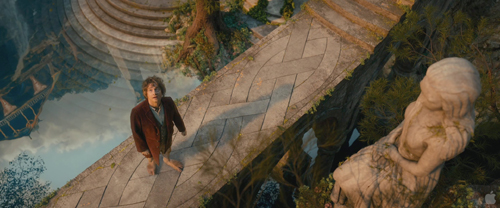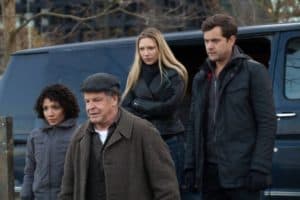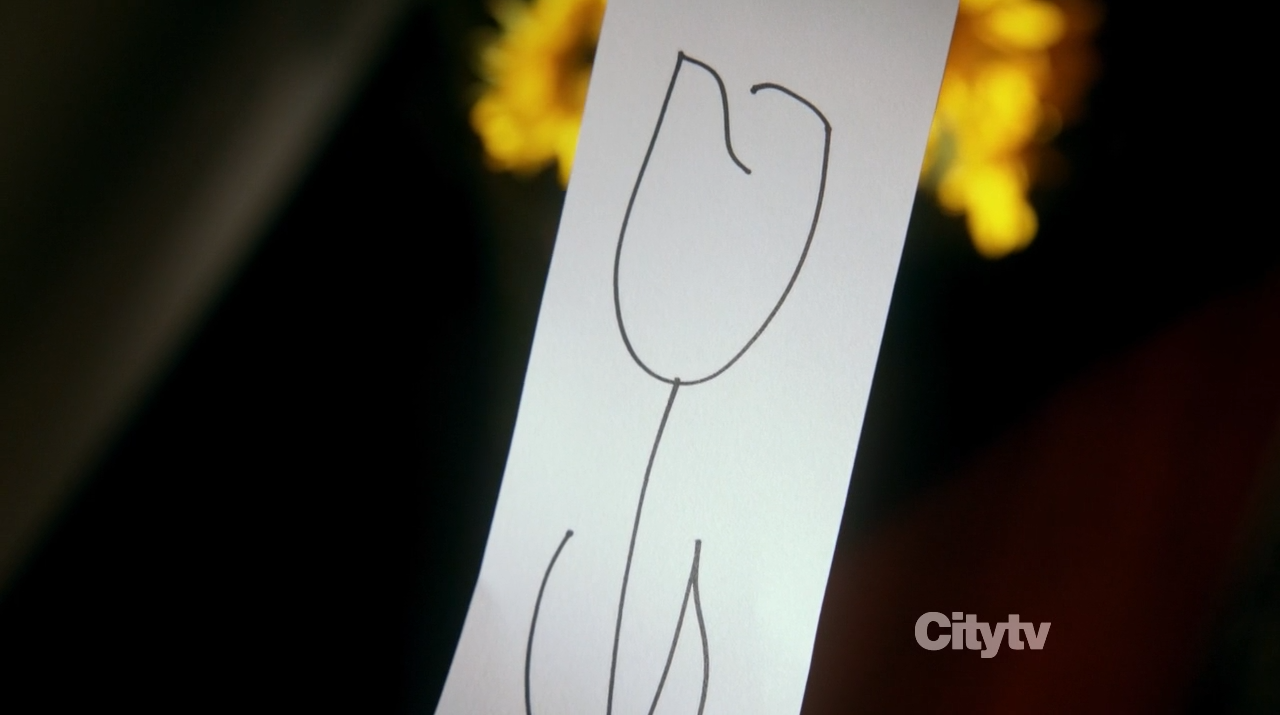Recently, someone approached me about my review of "The Hobbit: An Unexpected Journey." This person was surprised and put-off by my critique for using words such as "tedious" and "unnecessary" to describe the movie. But not because I simply criticized something they admitted to enjoying, but something I myself had.
After seeing "The Hobbit" opening weekend, this person and I "geeked out" over how great it was, dismissing the critics who dared make snarky comments about a world they didn't fully understand or appreciate. We were the real fans and those critics could go shove their opinions into a Oliphant's exterior.
 I would proudly shout my love of all things "Lords of the Rings" from atop the Misty Mountain. After all, I'm the person who, at thirteen, dressed up for Halloween with her best friend as Sam and Frodo (plastic hairy feet included); the person who owns "Lord of the Rings" Monopoly, a day-planner, book marks that fold out into maps of Middle-Earth, a puzzle, a Sam action figure, a pewter jewelry box featuring Arwen and Aragorn kissing after his coronation, and a giant "Return of the King" poster hanging over my bed at home (right to the left of my "Harry Potter" poster, of course). Yep, I admit to all of that with unironic pride.
I would proudly shout my love of all things "Lords of the Rings" from atop the Misty Mountain. After all, I'm the person who, at thirteen, dressed up for Halloween with her best friend as Sam and Frodo (plastic hairy feet included); the person who owns "Lord of the Rings" Monopoly, a day-planner, book marks that fold out into maps of Middle-Earth, a puzzle, a Sam action figure, a pewter jewelry box featuring Arwen and Aragorn kissing after his coronation, and a giant "Return of the King" poster hanging over my bed at home (right to the left of my "Harry Potter" poster, of course). Yep, I admit to all of that with unironic pride.
So why didn't my review reflect that level of unabashed enthusiasm that I felt the first (and second) time I saw "The Hobbit"? There are a lot of excuses I can give to my fellow LOTR enthusiasts who felt like I just stabbed them in the back with Morgul-blade: that the 400 word limit didn't give me enough room to offer all my (OVERWHELMINGLY POSITIVE) feelings, that I was attempting to view the film through the eyes of someone not familiar with Tolkien, that I was hyper-sensitive to how my Hobbit obsession might be clouding my judgement, that I was trying to be objective in examining how it "worked as a film."
But honestly, when it comes down to it, it was my own desire to be a "good" reviewer that caused me to fall into the critic's den of lions. I've read enough reviews in print and online to know how they work at the most basic level. The way I absorb "Entertainment Weekly" is akin to osmosis. In fact, the idea of being able to write about movies, television, and books, to channel my over-the-top, at times sociological obsessions into a career is almost too much for me to comprehend. And when I wrote my review of "The Hobbit," I knew what I was supposed to write, what I should write, in order for my review to be considered decent, even if it's not necessarily what I wanted to write.
Though I do feel that a lot of what I said in my review was accurate from a critic's standpoint. But what about a fan's standpoint? Especially in regards to this movie where fans are the target audience, those desperately waiting for reviews to either ardently affirm or deny the space into which they channel their energy. And I, first and foremost, am a fan. And as a intense fan about a number of different franchises, I hate reading anything that tries to undermine my enthusiasm.
So in this particular case, how do I stay true to my visceral reaction of "THAT WAS INCREDIBLE, I COULD HAVE SAT THERE FOR FOUR MORE HOURS!!! BIL-BO, BIL-BO, BIL-BO!" while also learning to emotionally detach myself and maintain some sense of objectivity? How do I write as both fan and critic? Because it's impossible for those to be mutually exclusive in every case. I'm not entirely sure but it's something that I'd like to explore more in this class.
Maybe, however, the answer has to do with my eternal search for my voice, both as a writer and human being. Perhaps it's about being able to throw reservation to the wind and say and do the things I want and feel without fear of others looking down upon me.
I love the things I love. I love to talk about those things, I love to write about those things. I just love to love things. And even if I'm forced to recognize that not everything I love is perfect, it doesn't make me love it any less.
So in this particular case, how do I stay true to my visceral reaction of "THAT WAS INCREDIBLE, I COULD HAVE SAT THERE FOR FOUR MORE HOURS!!! BIL-BO, BIL-BO, BIL-BO!" while also learning to emotionally detach myself and maintain some sense of objectivity? How do I write as both fan and critic? Because it's impossible for those to be mutually exclusive in every case. I'm not entirely sure but it's something that I'd like to explore more in this class.
Maybe, however, the answer has to do with my eternal search for my voice, both as a writer and human being. Perhaps it's about being able to throw reservation to the wind and say and do the things I want and feel without fear of others looking down upon me.
I love the things I love. I love to talk about those things, I love to write about those things. I just love to love things. And even if I'm forced to recognize that not everything I love is perfect, it doesn't make me love it any less.







